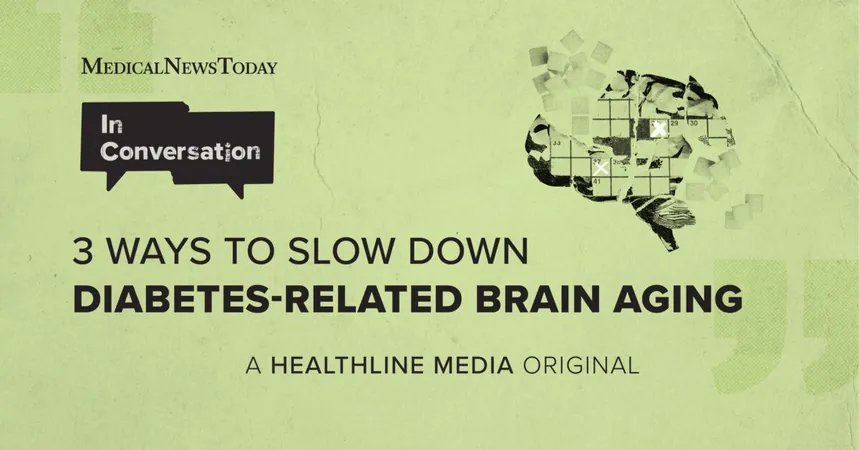
Unraveling the Links Between Diabetes and Cognitive Decline: Can We Slow Down the Clock?
2024-10-09
Author: Jia
Type 2 diabetes, a growing global epidemic, poses serious risks not just to metabolic health but also to brain function. With a staggering 422 million individuals diagnosed worldwide by 2014, and projections suggesting this number will rise to 783 million by 2045, the urgency to address and combat this condition has never been more critical.
What many don’t realize is that type 2 diabetes can have a cascading effect on various organs, including the heart, kidneys, and notably, the brain. Recent research highlights a concerning connection between diabetes and accelerated brain aging—potentially increasing the risk for conditions like Alzheimer’s disease and other forms of dementia. But what does this mean for our mental health, and crucially, can we do anything to mitigate these effects?
The answer may lie in lifestyle interventions. Evidence supports the idea that positive changes—such as adopting a balanced diet, engaging in regular physical activity, and maintaining a healthy weight—can prevent or delay the onset of type 2 diabetes and its related complications. In fact, studies suggest that effective management of blood glucose levels is not just about preventing physical ailments, but also preserving cognitive functions.
So, how does type 2 diabetes accelerate brain aging? Research indicates that elevated blood sugar levels can induce inflammation, oxidative stress, and damage to blood vessels in the brain. Each of these factors can contribute to cognitive decline, memory loss, and a heightened risk of dementia.
Insights from recent studies reveal promising strategies that could potentially slow down this diabetes-induced cognitive decline. One approach is dietary modification, focusing on a low glycemic index diet, which helps stabilize blood sugar levels. Regular exercise is also highlighted as a powerful ally, as it has been shown to foster neurogenesis—the growth of new neurons in the brain—and improve overall cognitive function.
In our latest podcast episode, we delve deeper into these findings, featuring Dr. Thomas Barber, an expert in endocrinology from the University of Warwick. He discusses critical research and shares practical lifestyle advice that listeners can incorporate into their daily routines to combat the negative impacts of diabetes on brain health.
As the diabetes crisis escalates, understanding its implications on cognitive decline becomes essential. Together, through informed lifestyle choices and ongoing research, we can work towards slowing down the clock on diabetes and safeguarding not just our bodies, but our minds as well.
Stay tuned for more insightful discussions and expert advice in our podcast series, where we unpack the complexities of diabetes management and its wide-reaching effects on overall health.


 Brasil (PT)
Brasil (PT)
 Canada (EN)
Canada (EN)
 Chile (ES)
Chile (ES)
 España (ES)
España (ES)
 France (FR)
France (FR)
 Hong Kong (EN)
Hong Kong (EN)
 Italia (IT)
Italia (IT)
 日本 (JA)
日本 (JA)
 Magyarország (HU)
Magyarország (HU)
 Norge (NO)
Norge (NO)
 Polska (PL)
Polska (PL)
 Schweiz (DE)
Schweiz (DE)
 Singapore (EN)
Singapore (EN)
 Sverige (SV)
Sverige (SV)
 Suomi (FI)
Suomi (FI)
 Türkiye (TR)
Türkiye (TR)